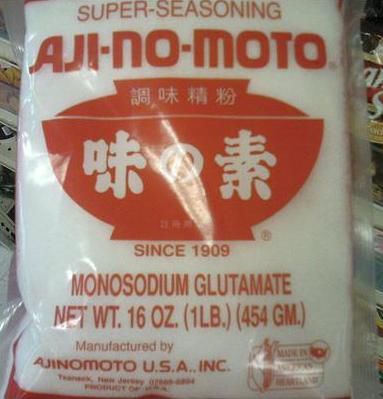MSG’s Reputation
October 22, 2018
MSG, according to MedicineNet is monosodium glutamate, or a chemical that enhances the flavor of certain foods. From what was isolated by seaweed is now used mostly for cuisines from China and Japan.
MSG is also naturally present in parmesan cheese, but many people speculate whether MSG is actually good for the human body. This includes the pros and cons of eating MSG in people’s daily lives.
Many people who eat too much MSG report of symptoms like “headache, throbbing of the head, dizziness, lightheadedness, a feeling of facial pressure, tightness of the jaw, burning or tingling sensations over parts of the body, chest pain and back pain,” according to MedicineNet.
MedicineNet also reports of more severe MSG reactions, such as arterial dilatation, which is the widening of the arteries. MSG receives a bad reputation because it can attribute to various health problems due to unnatural chemicals in the body.
Discovered by a Japanese chemist, Kikunae Ikeda, it was named “Aji no Moto,” or “essence of taste.” The chemical is still referred to by this name in other parts of the world but is called MSG in the United States.
For housewives in the 1950s, this brought hygiene and modernity to their meals, but for the current age, there is a movement in other parts of the world centered on putting only natural chemicals in your body.
“Our foods [in America] have a lot of sugar and empty carbs. We have the highest obesity population. We don’t worry about what we eat. We just get what’s convenient,” said freshman political science major Braden Ebert. “Other countries promote more natural and healthy diets rather than processed foods.”
Many people feel that MSG is bad for you because they might be experiencing what is called the nocebo effect, which suggests that the public’s negative opinion of MSG can make their symptoms worse. This means that many people blame the allergic reactions on MSG when it could be fabricated in their own mind.
“I don’t mind MSG, being a chem major, I have come to realize that it is a naturally found chemical and is one of the main amino acids,” said freshman chemistry major Corie Gleason. “I do know that people think MSG is bad for them because it is usually very high in sodium. People are often very afraid of things being put into their food.”
In a grocery store, it is easy to tell when something has MSG in it because of the label. When eating out, people usually don’t know what chemicals and other toxic chemicals are being digested into the body.
False connections with MSG have scared and startled many people into avoiding it all together when the culprit might be too much sodium for the human body to handle. This can also cause allergic reactions.
It is pretty safe to eat MSG in the correct and supplied amount. When consumption exceeds these amounts, dangerous cases can occur.
Regardless about how people feel about MSG, it’s always important to focus on what we’re putting into our bodies that may turn on us internally or externally.



